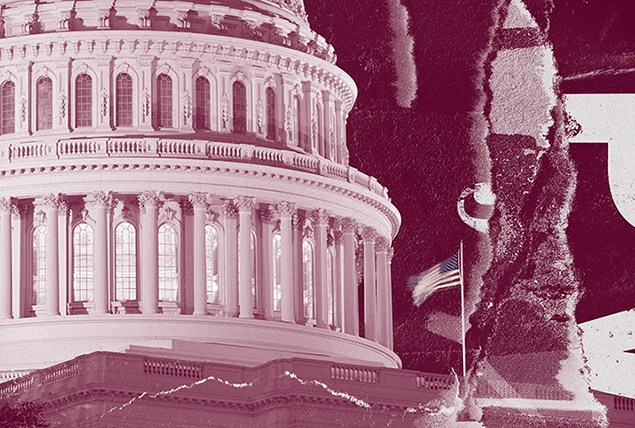Pregnant, Postpartum, Nursing Mothers to Get New Workplace Protections

In a bipartisan vote taken before the Christmas break, two landmark amendments were added to the U.S. government's fiscal year 2023 spending package, which stands at about $1.7 trillion. The amendments are the Pregnant Workers Fairness Act (PWFA) and Providing Urgent Maternal Protections (PUMP) for Nursing Mothers Act, passed by the Senate on Dec. 22 and the House on Dec. 23. Although discrimination against pregnant people is federally illegal, a 2022 Bipartisan Policy Center study found 1 in 5 mothers have experienced pregnancy discrimination in the workplace. Pregnancy discrimination, according to the U.S. Equal Employment Opportunity Commission (EEOC), can be based on a current pregnancy, past pregnancy, potential pregnancy, medical condition related to pregnancy or childbirth, having or choosing not to have an abortion or birth control. Thanks to the passage of the PWFA, first introduced in 2012 by Sen. Bob Casey, D-Pa., chair and ranking member of the Senate Health, Education, Labor and Pensions (HELP) Subcommittee on Children and Families, employers with more than 15 employees will be required to provide pregnant workers with "reasonable accommodations," which could include schedule changes or breaks from heavy lifting. In a press release, Casey said 75 percent of pregnant women and new mothers need access to reasonable workplace accommodations. "Pregnancy should never be a barrier for women who want to stay in the workplace," the senator said in the release. "This legislation would provide commonsense protections for pregnant workers, like extra bathroom breaks or a stool for workers who stand, so they can continue working while not putting extra strain on their pregnancies. I have been fighting for these protections for a decade and I want to thank my partner, Senator [Bill] Cassidy [R-La.] for working tirelessly with me to get this over the finish line."
On Dec. 29, President Joe Biden signed into law the 2023 spending bill, including the Pregnant Workers Fairness Act.
The legislation comes at a time when the percentage of women employed in the United States is at its lowest since 1991.
During the COVID-19 pandemic, between February 2020 and January 2022, a record 1.1 million women left the workforce—accounting for 63 percent of all jobs lost during the time period, according to a National Women's Law Center analysis of U.S. Bureau of Labor Statistics data.
Cause for celebration
Many organizations celebrated the congressional passage of the PWFA, with more than 200 organizations endorsing the act.
Forty years ago, many of the same women's and worker's rights organizations, including the AFL-CIO, were instrumental in the passage of the Pregnancy Discrimination Act (PDA) signed into law by then-President Jimmy Carter in 1978.
Dozens of the PWFA's endorsing organizations issued statements before Christmas highlighting the historic nature of the bill's passage.
"Employers can no longer treat pregnant workers like they are expendable once they find out they are expecting a child or need a modest accommodation to prevent serious health complications," said Dina Bakst, co-founder and co-president of nonprofit A Better Balance in New York City, in a statement that also claimed her New York Times op-ed piece, "Pregnant, and Pushed Out of a Job," inspired the PWFA's congressional introduction a decade ago.
"What's more, the inclusion of the PUMP for Nursing Mothers Act—legislation that will guarantee millions more workers the right to break time and space to express milk—makes the omnibus a historic package of vital protections and support for moms, moms-to-be and working families," she said. "After decades of being brushed aside and being treated like second-class citizens, pregnant and postpartum workers will finally have the law on their side, affording them long overdue respect, dignity and equality under our nation's civil rights law."
Fatima Goss Graves, CEO and president of the National Women's Law Center, issued a statement calling the PWFA's passage a "historic" and "thrilling" victory.
"Before this legislation, too often, when a pregnant worker needed a minor change in workplace duties or policies because of pregnancy, she was forced to take unpaid leave or be pushed out of work entirely—at a moment when she and her family could least afford it," Graves said in the statement. "Ensuring reasonable accommodations are available for pregnant workers is a win-win for workers who will continue doing their jobs during their pregnancies and for employers who will retain their workforce."
Graves detailed the long road it took to get to this point, and thanked special "champions in Congress" for this bill.
In a January 2022 statement urging Congress to pass the PWFA, the United States Conference of Catholic Bishops highlighted more than two dozen states that enacted pregnancy protections, absent legislation from the federal government.
"Recognizing the current gap in federal protections, at least 27 states have already passed legislation guaranteeing some form of accommodations for pregnant workers," the statement said. "Federal legislation is needed to create a uniform baseline standard throughout the country."
The PWFA, modeled after the Americans with Disabilities Act (ADA), intends to close a loophole in the 1978 PDA legislation by requiring employers to make temporary accommodations so pregnant employees can continue to work throughout their pregnancy.
Christian Nunes, president of the National Organization for Women (NOW), in a statement, called the PWFA's passage a "win for women and a win for the economy."
Loopholes
Good intentions aside, the new legislation may provide employers with a sizable excuse to not provide accommodations to pregnant women.
The PWFA allows employers to deny pregnancy or postpartum accommodation requests if they are not deemed reasonable or if fulfilling the request would "pose an undue hardship to the employer."
More than 800 million women worldwide lack economic security around childbirth, according to estimates by the World Health Organization (WHO) and the International Labour Organization (ILO).
"Returning to work after maternity leave has been identified as a significant cause for never starting breastfeeding, early cessation of breastfeeding and lack of exclusive breastfeeding," the WHO states.
In landmark legislation for nursing mothers, PUMP aims to close a loophole in the Break Time for Nursing Mothers law, passed in 2010, which excluded about 9 million women—including teachers, nurses and farmworkers—from breastfeeding protections. Thanks to PUMP, employers will be required to provide nursing workers with reasonable time and private space to pump breast milk at work.
Maternal mortality crisis
The promise of PWFA's additional protections for pregnant and postpartum people fails to address the elephant in the room: America's worsening maternal mortality crisis.
While the new legislation appears to close some workplace loopholes for pregnant and postpartum mothers, according to a study released in December from the New York-based nonprofit Commonwealth Fund, more is likely needed to protect pregnant people and improve America's dismal maternal mortality rate.
America's maternal death rates have steadily been on the rise for the past two decades, the nonprofit found. More significant increases have occurred in recent years, widening the maternal mortality gap between the U.S. and peer high-income countries, according to an analysis of 2020 data from the Organization for Economic Co-operation and Development and the Centers for Disease Control and Prevention.
COVID-19 caused 25 percent of maternal deaths between 2020 and 2021, according to the U.S. Government Accountability Office.
"In 2020, the maternal mortality rate in the U.S. was 24 deaths per 100,000 live births—more than three times the rate in most other high-income countries," the Commonwealth Fund reported. "In the Netherlands, almost no women died from maternal complications. The U.S. maternal mortality rate is exceptionally high for Black women. It is more than double the average rate and nearly three times higher than the rate for white women."
The nonprofit group suggested the following solutions: give women free or affordable access to primary healthcare before, during and after pregnancy, and provide free comprehensive postpartum support.
"The U.S. is the only country in this analysis that does not provide universal healthcare, leaving nearly 8 million women of reproductive age uninsured," the Commonwealth Fund stated.
Women account for just over half of the American workforce. An estimated 88 percent of women who had their first child between 2006 and 2008 worked during their last trimester of pregnancy, according to data from the National Women's Law Center.


















